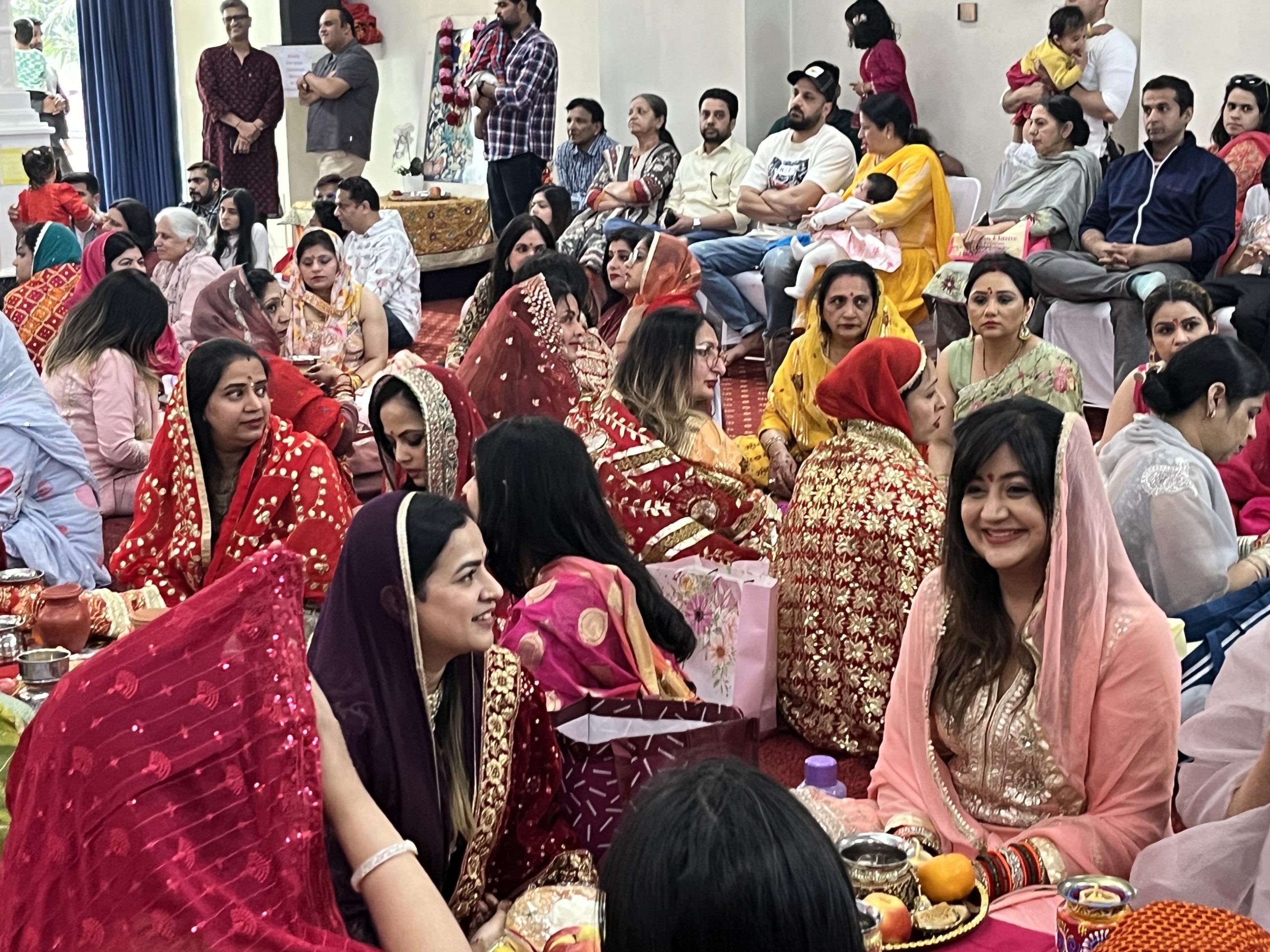Karwa Chauth is a festival celebrated by Hindu women, primarily in the northern regions of India, during the Hindu lunar month of Kartika, which typically falls between mid-October and early November. Rooted in the lunisolar Hindu calendar, Karwa Chauth takes place on the fourth day after the full moon, a day devoted to fasting and prayer for the well-being, longevity, and safety of their husbands. The festival is particularly observed in states such as Delhi, Haryana, Punjab, Rajasthan, Madhya Pradesh, Uttar Pradesh, Himachal Pradesh, Jammu, and even Andhra Pradesh.
The name “Karwa Chauth” comes from two words: “Karwa,” which refers to a small earthen pot filled with water, and “Chauth,” meaning the fourth day after the full moon. This simple yet profound symbolism reflects the festival’s deep connection with both spirituality and tradition.
Historically, Karwa Chauth is steeped in cultural significance. One of its origins is linked to the Rajput warriors, who often embarked on long military campaigns, leaving their wives and families behind. These women, filled with concern for their husbands’ safety, would observe fasts and offer prayers for their safe return from the battlefield. The timing of the festival also aligns with the wheat-sowing season, marking the beginning of the Rabi crop cycle. In the predominantly wheat-consuming northwestern regions of India, the fast may have also originated as a prayer for a prosperous harvest, with large earthen pots used to store wheat being called “karvas.”
Another fascinating aspect of Karwa Chauth’s origin is the celebration of feminine friendships. In traditional arranged marriages, a bride would often move in with her husband and in-laws, making her new environment unfamiliar. To provide emotional and psychological support, the custom arose of forming a special bond with another woman from the same or nearby village. This woman, known as a “kangan-saheli” (friend) or “dharam-behn” (sister by vow), would be a lifelong friend, bonded through a Hindu ritual during the marriage ceremony. This unique connection helped newlyweds navigate the complexities of their new family life, and over time, Karwa Chauth evolved to celebrate these cherished friendships as well.
In recent years, the celebration of Karwa Chauth has spread beyond India, particularly among the Indian diasporas. In New Zealand, where there is a sizable Hindu population, especially in Auckland, Karwa Chauth is widely celebrated in Hindu temples. The festival draws large crowds of married women, dressed in their finest traditional attire, gathering in groups to pray under the guidance of priests and to the tunes of devotional songs recounting the legends of Karwa Chauth.
One of the primary centres of celebration in Auckland is the Bharatiya Mandir in Balmoral, which sees hundreds of married couples participating in the Karwa Chauth pooja (ritual). Interestingly, the festival has become a community event in New Zealand, with many men actively supporting their wives during the rituals. The celebrations usually start in the late afternoon, around 3 pm, and extend well into the night, as the women fast until the sighting of the moon, which often occurs after 11:30 pm. Once the moon is sighted, the fast is broken at midnight, marking the end of the day’s rituals.
The festival of Karwa Chauth, whether celebrated in India or in far-off places like New Zealand, remains a vibrant expression of devotion, cultural heritage, and emotional bonds, both between spouses and among friends.
-Yugal Parashar



